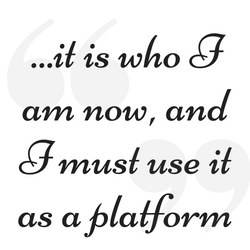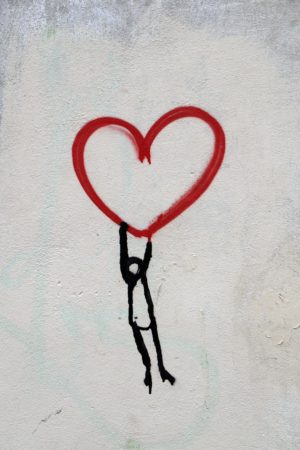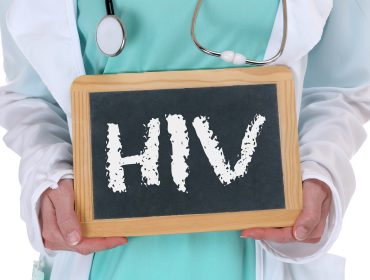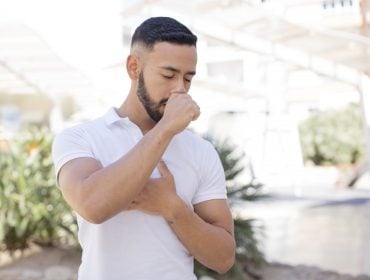My HIV Story: Using My Voice To Help Others
*The following narrative is from one of our HIV-positive scholarship applicants. It has been minimally changed to remove any identifying information.*
This felt like coming out all over again.
Towards the end of the summer of 2015, I was diagnosed with HIV after feeling rather ill. I had just gotten back home from an internship in Maryland when I began feeling sick. Apparently, a guy I met there who I was talking to for a few months was a carrier and did not disclose that information when I asked him. Although the sex was consensual, I neglected to use protection. After receiving the diagnosis, I tried to contact him, and he verbally berated me and said that I deserved it. Receiving this news, after attempting to come out to my father, felt like a double blow to my psyche. I was psychologically fragile and vulnerable during this time, and I tried not to lash out at my mom and aunt (who knew at the time). My thoughts immediately shifted to how my life was going to change, who was going to reject me, and the intrapersonal stressors I would have. This felt like coming out all over again.
Becoming diagnosed with HIV has drastically changed my life.
There are deeper implications for my future relationships and partnerships. I do have fears that with my diagnosis, the stigma concerning HIV, and my sexual orientation that I will not be able to galvanize any type of important relationship. My diagnosis has significant implications on my health, given that I am compliant with my medication, I feel healthy, but I must still understand that I will not be at my best every day, which is why I must place extreme importance on self-care and balance. Biologically, my body is different, adapting, and fighting this autoimmune disease. I would be lying if I did not say that I still wish I could erase that part of my life, but it is who I am now, and I must use it as a platform when I find the strength to disclose. Cognitively, my psyche is stronger, I know I can overcome a lot of adversity. Overall, interacting with our social differences is inevitable, but it is how we navigate those cultural norms, expectations, and proclivities safely that define us.

I’ve become so engrossed with the topic of HIV/AIDS that one of my dual positions is at a local non-profit agency in my state.
 This agency has become one of my state’s longest standing LGBTQ youth centers in the state and a nationally recognized organization. It supports and empowers LGBTQ young people by creating a safe space, providing health and wellness services, and offering youth development opportunities while bringing people and resources together to promote equality and human rights. The special part about it is the focus on creating a space where lesbian, gay, bisexual, transgender and questioning youth, aged 13-23, can nurture their health and well-being. I am one of the medical case managers serving the entire city of LGBTQ youth. My role involves providing HIV linkage and retention to medical care services for newly diagnosed youth, providing housing case management assistance, substance abuse support and crisis intervention. Concurrently, I provide in-house HIV testing during our Drop-in nights, as well as run our sexual health clinic. Recently, I was asked to run a program which provides the space for transition-aged, queer youth (13-18) to discuss any and everything regarding gender identity. I will also be joining an advisory board which advocates for necessary revisions regarding the current policies and procedures surrounding the mental health of LGBTQ persons, specifically youth. Despite growing awareness of sexually divergent youth issues in the mental health community, marginalization of transition-aged queer minority youth remains widespread. Furthermore, queer transition-aged youth comprise a disproportionate portion of the homeless population, limiting their access to medical and psychiatric care.
This agency has become one of my state’s longest standing LGBTQ youth centers in the state and a nationally recognized organization. It supports and empowers LGBTQ young people by creating a safe space, providing health and wellness services, and offering youth development opportunities while bringing people and resources together to promote equality and human rights. The special part about it is the focus on creating a space where lesbian, gay, bisexual, transgender and questioning youth, aged 13-23, can nurture their health and well-being. I am one of the medical case managers serving the entire city of LGBTQ youth. My role involves providing HIV linkage and retention to medical care services for newly diagnosed youth, providing housing case management assistance, substance abuse support and crisis intervention. Concurrently, I provide in-house HIV testing during our Drop-in nights, as well as run our sexual health clinic. Recently, I was asked to run a program which provides the space for transition-aged, queer youth (13-18) to discuss any and everything regarding gender identity. I will also be joining an advisory board which advocates for necessary revisions regarding the current policies and procedures surrounding the mental health of LGBTQ persons, specifically youth. Despite growing awareness of sexually divergent youth issues in the mental health community, marginalization of transition-aged queer minority youth remains widespread. Furthermore, queer transition-aged youth comprise a disproportionate portion of the homeless population, limiting their access to medical and psychiatric care.

Additionally, I work with a group to ensure that the research agenda and work of the Adolescent Medicine Trials Network for HIV/AIDS Interventions that reflects and addresses the current needs and issues of youth who are living with HIV. I take the sentiments I see and hear from my clients in my current profession and engender that conversation through this platform. Most, if not all of my clients feel as if their voice is not a part of the conversation, and that no one will listen to them. This platform allows me to be their voice and work for thorough policy revision.
A common sentiment I hear during support groups I conduct with other HIV positive young adults is that their life is over. There are not enough voices combating the negative stigma of HIV, so individuals may internalize the stigma. Somewhere, someone is hoping that I use my voice, our voices to pull them through. I want to let my community know that you are necessary, you are valid, and know that defining yourself is a process. Don’t ever think you must be just one thing; you are infinite and every part of yourself is valid. HIV should not be an identifier, just an aspect of your identity. I feel no different than before, I am healthier, and I am stronger.
Secure and Confidential
STD testing services
The fastest results possbile - available in 1 to 2 days





